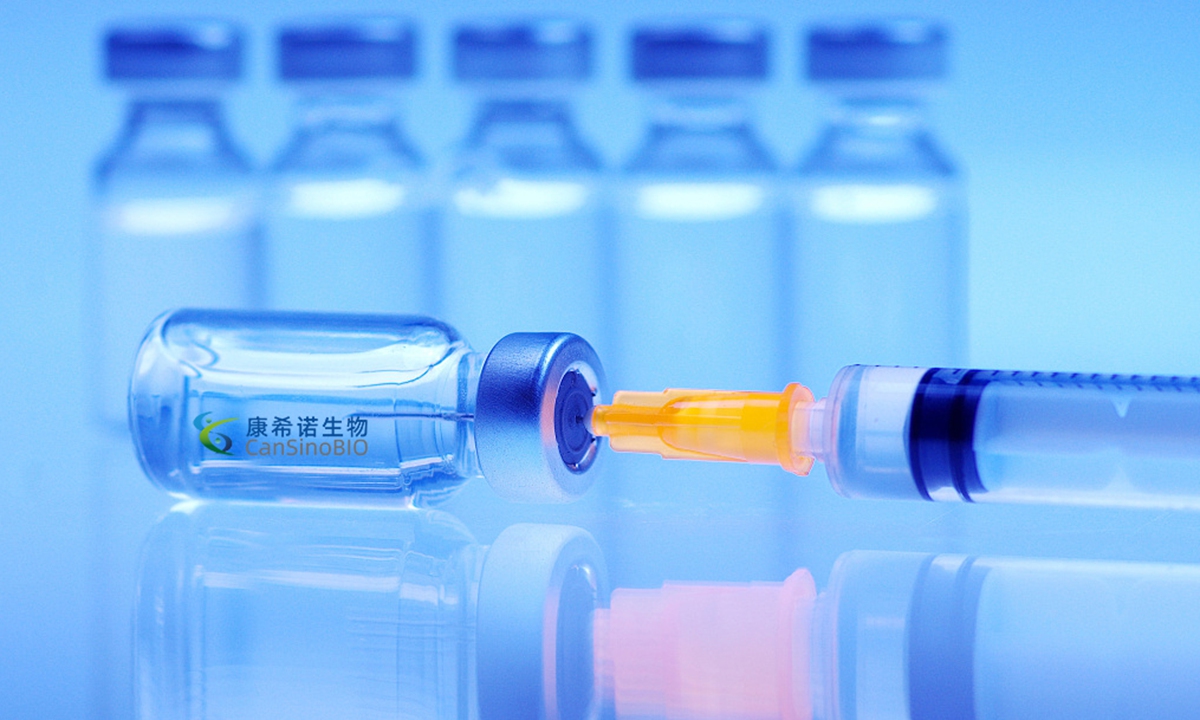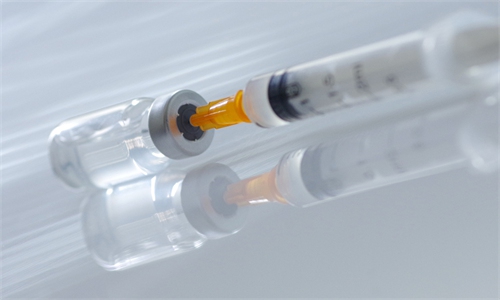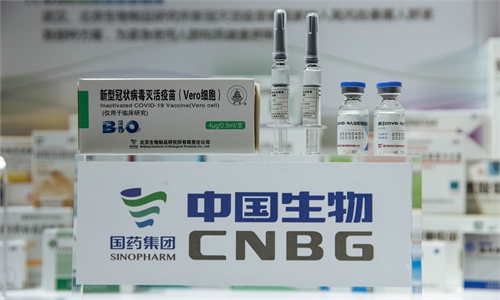CanSino says its COVID-19 vaccine has no serious adverse events, meets efficacy criteria in interim analysis

CanSino Bio Photo:VCG
The AD5-nCOV vaccine candidate developed by Chinese biopharmaceutical company CanSino Biologics has met its pre-specified primary safety and efficacy criteria at interim analysis, with no serious adverse events, and the company will continue to advance its phase III clinical trial of the vaccine.
The company is expected to obtain the interim data of its phase-three clinical trials across the world this week after they are unblinded, the Global Times learned.
The phase III clinical trial of Ad5-nCoV saw more than 40,000 volunteers administered with the vaccine in 78 clinical trial sites across five countries in three continents, according to a notice CanSino Biologics sent to the Global Times on Monday.
Unlike inactivated vaccines, Cansino's vaccine is effective with a single dose and can bring dual protection - humoral and cellular immunity - at the same time.
Ad5-nCoV's phase II and III trials all involved aged participants and saw no serious adverse reactions, demonstrating that it is safe for the elderly, the Global Times learnt from a source close to CanSino on Monday.
The vaccine can be stored and transported at temperatures of between 2 and 8 C, and production does not require biosafety level three laboratories, which is the case with inactivated vaccines. Experts said this makes them more accessible for developing countries with limited facilities.
The upcoming interim results are data collected from multiple centers across the world where phase III trials were conducted, including Russia, Mexico, Pakistan, Argentina and Chile. It is a global multi-center clinical trial using uniform standards and organizational plans. Each center has a principal investigator and a contract research organization as partners .
CanSino said it has completed case accrual for the interim analysis of the phase III clinical trial of Ad5-nCoV, and the data from these cases has been submitted to the Independent Data Monitoring Committee (IDMC) for analysis and recommendation.
The Ad5-nCoV vaccines is a recombinant adenovirus vector vaccine jointly developed by CanSino Biologics and researchers from the Institute of Military Medicine under the Academy of Military Sciences led by Chen Wei.
The COVID-19 vaccines developed by Russia's Sputnik V, British-Swedish pharmaceutical and US' AstraZeneca and Johnson & Johnson use a similar approach.
Since human adenoviruses have become common in general epidemics, it's possible that potential vaccine recipients could have pre-existing immunity, which would negate the effects of a vaccine, Shao Yiming, one of the chief medical advisors for the R&D of Chinese COVID-19 vaccines, told the Global Times on Monday.
As the CanSino uses the most common human adenovirus Type 5 (Ad5) for its vaccine development, its efficacy is likely to be slightly lower than those that use a less common subtype, such as subtype Ad26, used by Johnson & Johnson, and a chimpanzee adenovirus used by AstraZeneca.
The AstraZeneca/Oxford vaccine's efficacy in preventing symptomatic infections was 70.4 percent, according to its interim data, media reported.
The UK regulator recommends a booster shot of four to 12 weeks after the first dose, as up to 80 percent efficacy was reached with a three-month interval between shots, Reuters reported.




